Phonics skills improvement Normal Alphabet Worksheets for Ages 4-8
6 filtered results
-
From - To
Enhance your child's reading abilities with our Phonics Skills Improvement Normal Alphabet Worksheets, designed specifically for ages 4-8. These engaging worksheets focus on blending sounds, recognizing letter patterns, and developing essential phonemic awareness—all fundamental skills for early literacy. Each activity encourages practice and reinforces connection between letters and their sounds, making learning both fun and effective. With vibrant illustrations and structured exercises, children are motivated to explore the world of phonics confidently. Perfect for home or classroom use, our printables support young learners' growth and foster a strong foundation for their reading journey. Discover the joy of learning with Kids Academy!
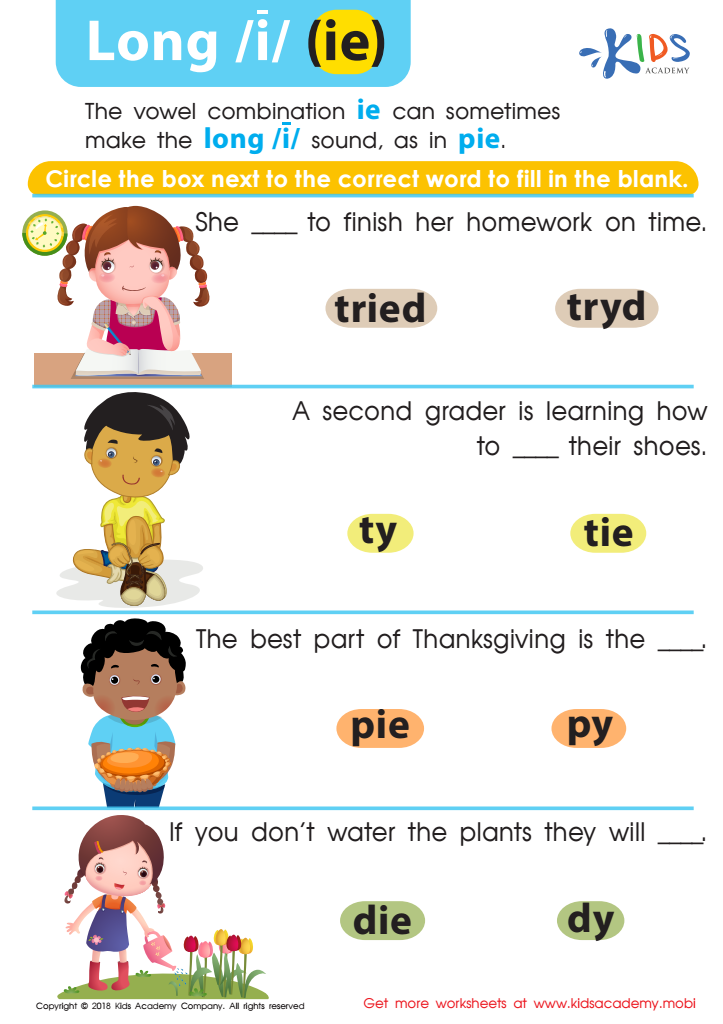

Reading: Long I and IE Worksheet
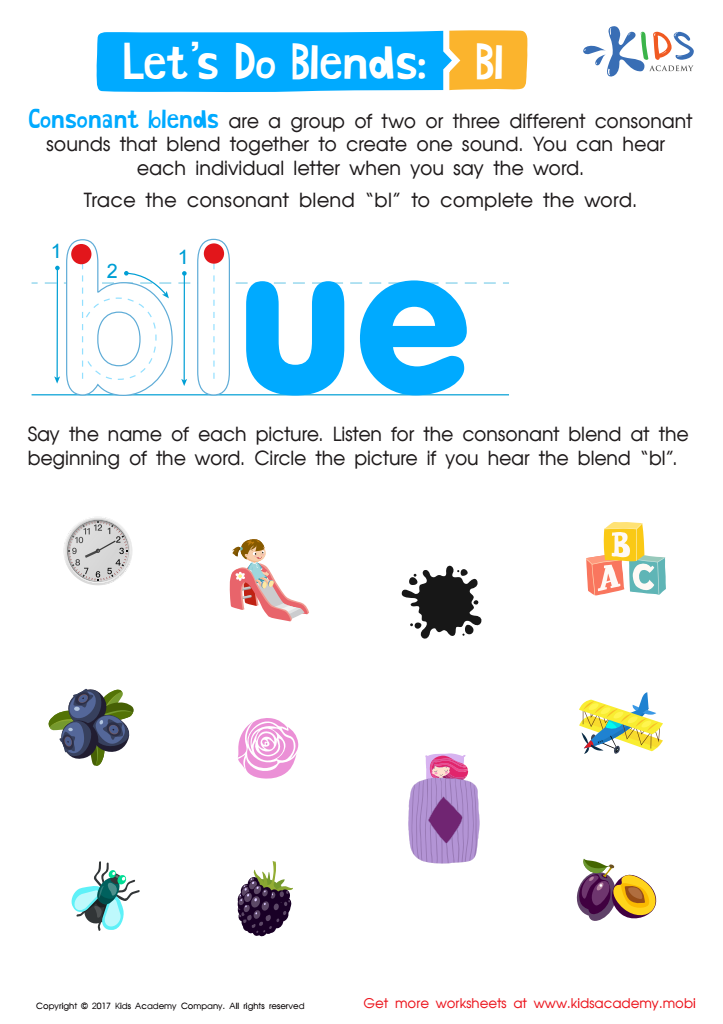

Beginning Blends: "Bl" Words Worksheet
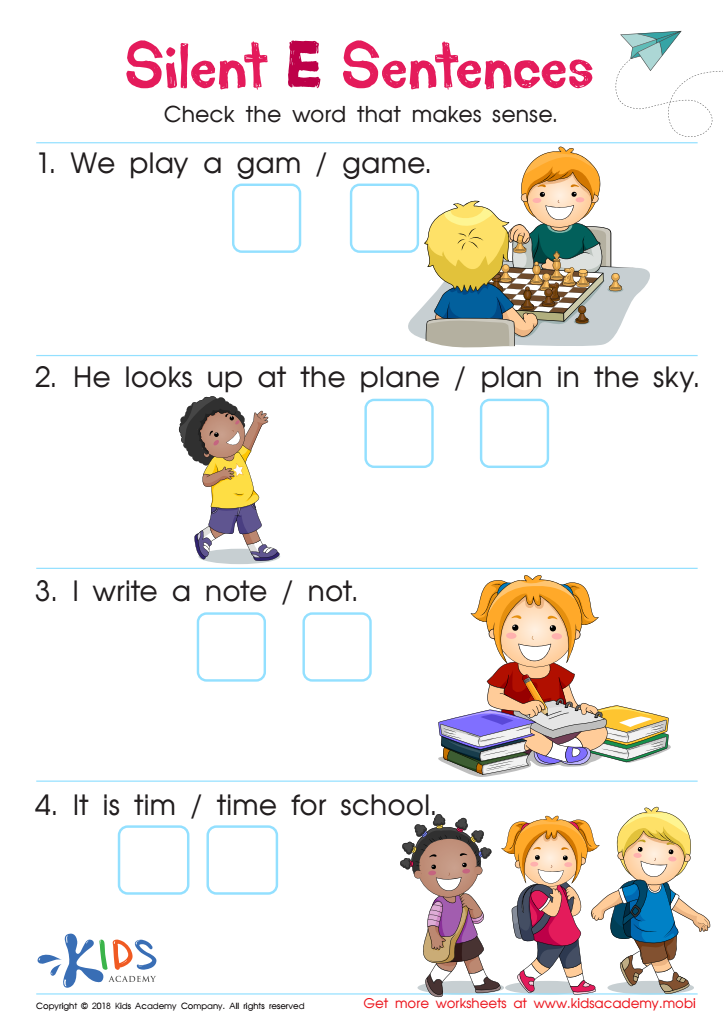

Silent E Sentences Worksheet


Long and Short U Worksheet
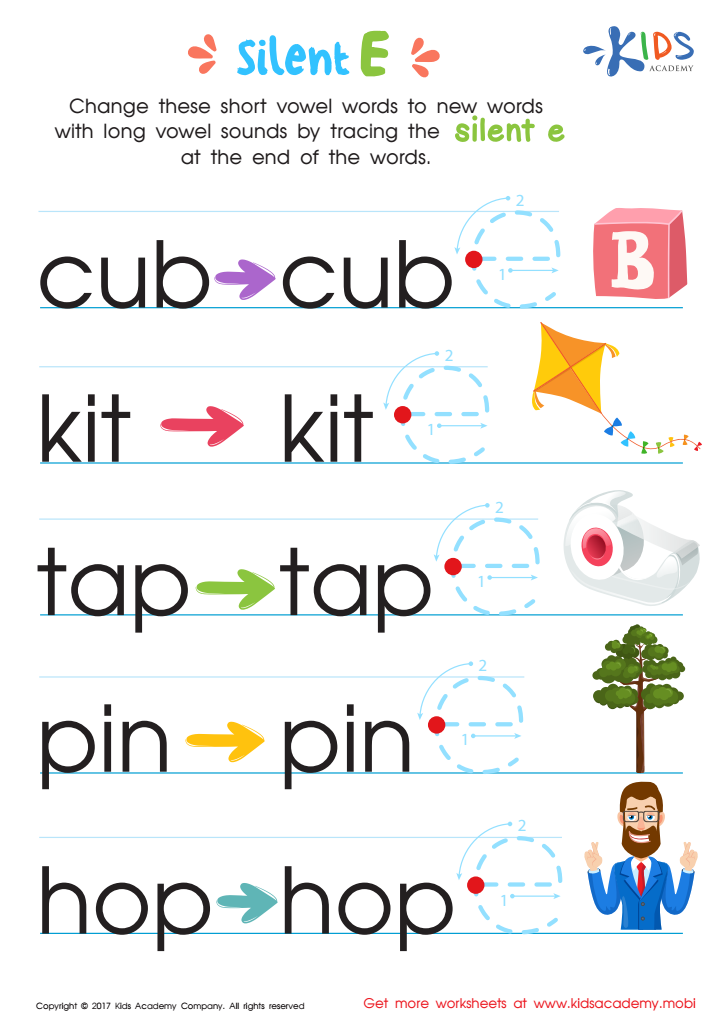

Silent E Words Worksheet
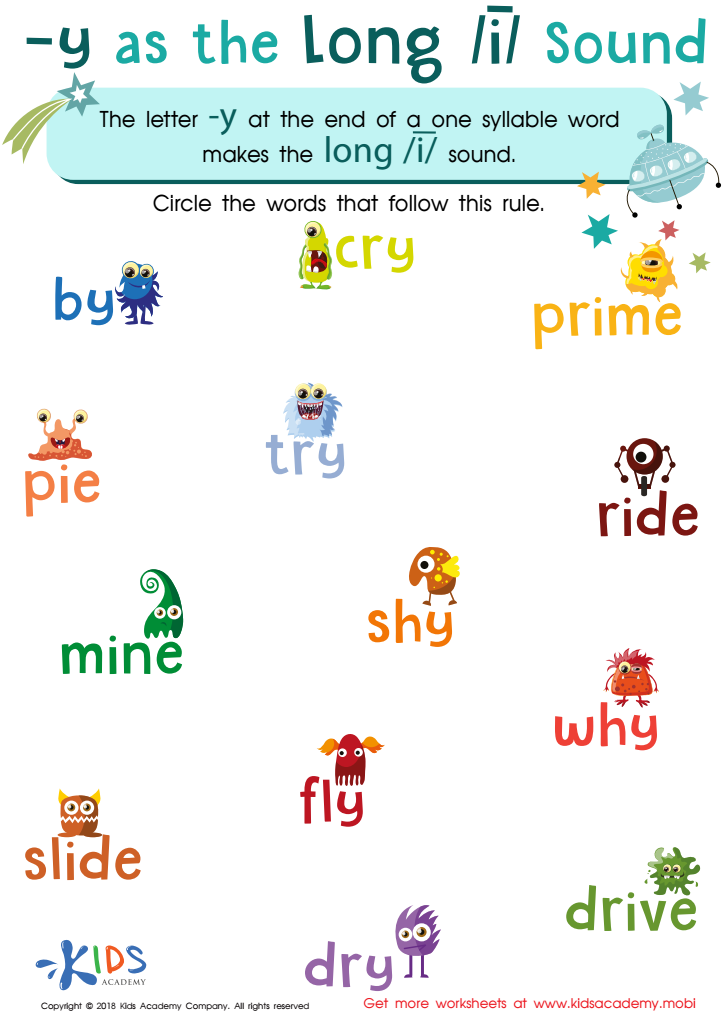

Reading: Y as Long I Worksheet
Phonics is a foundational skill that significantly impacts a child's reading and writing abilities, crucial for children aged 4-8. As children learn to associate sounds with letters and word patterns, they develop the ability to decode words, leading to improved reading fluency and comprehension. Parents and teachers should prioritize the enhancement of phonics skills because a strong phonetic background facilitates early literacy development, setting the stage for future academic success.
Investing in phonics also boosts children's confidence in their reading capabilities. When they master the sounds corresponding to letters, children become more willing to tackle new words and texts, fostering a love for reading. This enjoyment amplifies their desire to explore books independently.
Furthermore, effective phonics instruction enhances vocabulary development. As young learners encounter new words through reading, they gain better comprehension in varied subjects, creating a holistic approach to education.
In an age where literacy is essential for communication and learning, ensuring children develop strong phonics skills can diminish the risk of future reading difficulties. Teachers and parents share the responsibility of nurturing these skills, providing support and encouragement that helps children thrive academically and socially.

 Assign to My Students
Assign to My Students



















